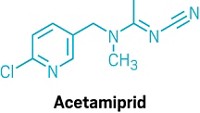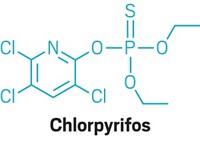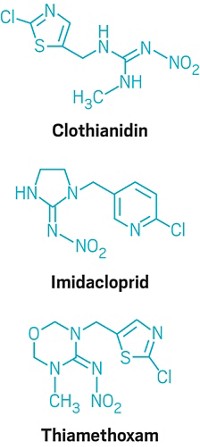Advertisement
Grab your lab coat. Let's get started
Welcome!
Welcome!
Create an account below to get 6 C&EN articles per month, receive newsletters and more - all free.
It seems this is your first time logging in online. Please enter the following information to continue.
As an ACS member you automatically get access to this site. All we need is few more details to create your reading experience.
Not you? Sign in with a different account.
Not you? Sign in with a different account.
ERROR 1
ERROR 1
ERROR 2
ERROR 2
ERROR 2
ERROR 2
ERROR 2
Password and Confirm password must match.
If you have an ACS member number, please enter it here so we can link this account to your membership. (optional)
ERROR 2
ACS values your privacy. By submitting your information, you are gaining access to C&EN and subscribing to our weekly newsletter. We use the information you provide to make your reading experience better, and we will never sell your data to third party members.
Environment
Bee Study Prompts Action
Environment: European Union proposes two-year ban on neonicotinoid pesticides linked to bee declines
by Britt E. Erickson
February 7, 2013
| A version of this story appeared in
Volume 91, Issue 6

The European Commission has proposed a two-year ban on the use of three neonicotinoid insecticides on crops in the European Union that attract bees. The move comes two weeks after the European Food Safety Authority (EFSA) found significant risks to bees associated with the three chemicals.
In light of EFSA’s conclusion that clothianidin, imidacloprid, and thiamethoxam can’t be ruled out as a cause of bee population decline in Europe, “we are requesting that member states suspend for two years the use of these pesticides,” on sunflower, rape, maize, and cotton, EC spokesman Frédéric Vincent said at a press conference. After two years, the commission will review the measures to see if they are working, Vincent noted.
The three chemicals, which target the central nervous systems of insects, are used primarily to treat seeds prior to sowing. Dust from the pesticide-coated seeds is released during planting and believed to be one route of exposure to bees. Contact with nectar and pollen of treated crops is also thought to be a source of exposure to bees. Studies published last year in the journal Science link the compounds to bee declines.
Bayer CropScience, which produces clothianidin and imidacloprid, calls the proposal “draconian.” The company claimed that such restrictions would jeopardize agricultural competitiveness in Europe and “lead to higher costs for food, feed, fiber, and renewable raw materials.”
Both Bayer and Syngenta, which makes thiamethoxam, believe that multiple factors are responsible for declining bee populations and that parasitic mites, not chemicals, are the most important one.
Environmental groups welcomes the decision, calling it a step in the right direction. But one activist group, the Germany-based Coalition against Bayer Dangers, wants to go further. The group demands a permanent ban and calls on the commission to make manufacturers of the three pesticides liable for all damages caused by the chemicals.
Representatives from all EU member states are expected to vote on the proposal at a Feb. 25 meeting. If it is approved, the two-year ban would likely become effective July 1.





Join the conversation
Contact the reporter
Submit a Letter to the Editor for publication
Engage with us on Twitter